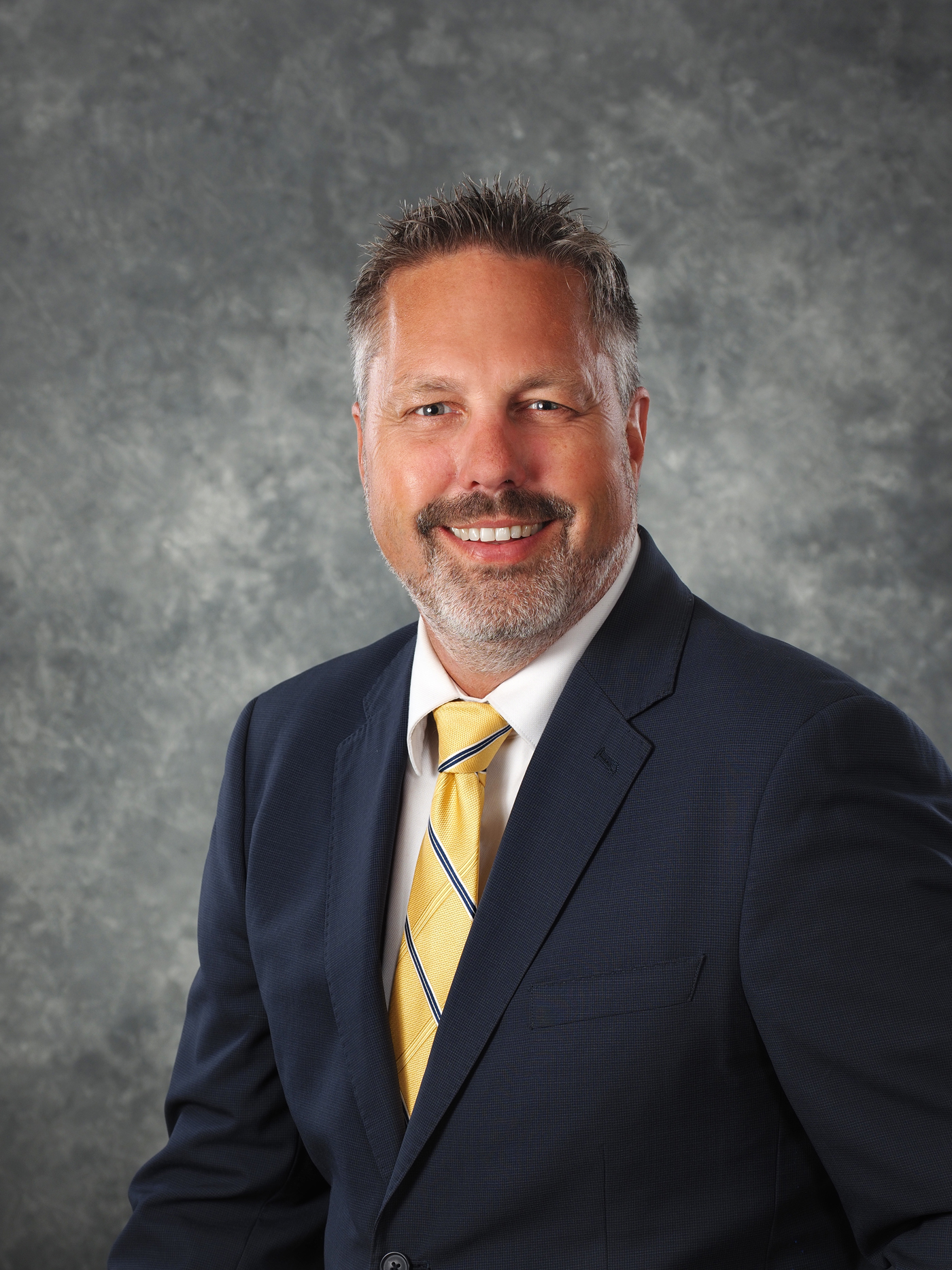An Interview with Mike Nadeau
An Interview with Mike Nadeau
By: Angelica Nuguid
June 2024
Mike is currently the CEO of the Sault Ste. Marie Social Service Administration Board and Treasurer of OMSSA. He has over 20 years’ experience in both First Nations and municipal human services. Prior to joining the District of Sault Ste. Marie, Mike was the Executive Director for the Ontario Native Welfare Administrators’ Association (ONWAA) for 12 years and was accountable to 108 First Nations across the province.
Mike has extensive knowledge regarding human service delivery, policy and best practices. This interview explores his experience working with different communities and his overall experience and contributions to the human services sector.
This interview has been edited and condensed.
OMSSA: During your time as Executive Director for the Ontario Native Welfare Administrator’s Association (ONWAA), you mentioned you collaborated with many Indigenous communities in Ontario. Could you share with Members how you facilitated consensus with different communities?
Mike Nadeau (MN): When I was with ONWAA, it's an organization that's consistent with OMSSA. It has a membership base across the province of Ontario Works delivery agents. It also focuses on homemaking and housing. From a consensus-based perspective, it was really important that you consulted heavily with the membership. Before decisions were implemented, there was an active and robust engagement strategy that we had with members and we used a variety of feedback tools such as surveys and emails. The Board structure was consistent to OMSSA and Board Members were expected to consult heavily with their membership in their geographic area to make sure that they were voicing and bringing their members' collective experiences to the table.
During our annual assemblies, there was an opportunity to consult with the membership, to drive
However, whenever there were issues and there were items that we disagreed upon, it was really important that myself and the Board member or myself and the President were deployed into the communities to find out and get a better understanding of the collective need. We made sure that we were never speaking on behalf of the First Nation. We were trying to speak on behalf of the organization, which was ONWAA. The political leadership was left to ensure that was the voice that we carried, and we tried to speak collectively on the issues from a social policy perspective.
OMSSA: As the CEO of the District of Sault Ste. Marie Social Services Administration Board (DSSMSSAB), could you talk about what considerations human services staff should keep in mind regarding the connection between provincial and municipal authorities in the delivery of human services? What highlights and challenges came with this role?
MN: Some of the things that I'm hoping my team will always keep in mind is, in my opinion, the provincial policy is written by people in Queen's Park. It very seldom has any northern perspective baked into it, even if sometimes there is a northern flair or a northern perspective that's considered. Provincial policy is rarely reflective of the needs of the people that we serve, which is marginalized community populations. What we're trying to make sure of is that we always keep in mind who we actually work for. We work for the community and we work through the Board of Directors to be able to do that work.
We really want to make sure that the needs of the community and the needs of the people that we're actually tasked and employed to serve is always front and center. I always have a saying - If it says that we should do something, or if it's a guideline, then we will consider it. If it says that we shall or that we must, then it's an absolute requisite under law. The way that the policy directives are written, if it says that we should, we look at it as a recommendation or a best practice. However, if it doesn't fit the needs of our local community then we'll make up those policy statements to best fit the citizens of Sault Ste. Marie. We're always trying to balance that dynamic of the local needs of the local municipality versus the provincial accountability framework that was passed to operate within.
Some of the highlights that come from the role are just some of the successes that we've been able to bring to the community from an organizational perspective, whether it be new housing that we're bringing in line, new childcare services, formerly increased employment offering or land-based emergency medical services.
The challenges that we have is the resources that we are provided with are nowhere adequate to deal with the reality that we're facing on the ground or the needs of the community. Social assistance rates have not kept up. My former director of Ontario Works always reminded us that the General Welfare Assistance Act (GWA) rates when she started working 30 years ago were very similar if not consistent to the current Ontario Works benefit rates of today. So the challenges that we have are all resource challenges. The demand outpaces the ability for us to be able to respond adequately to the need, whether it be homelessness, housing services, child care wait lists, and calls for service for EMS. The needs of the community are more complex than ever. They're greater than ever, and the resources are quite simply not keeping pace.
OMSSA: Having served on several human services associations throughout your career, could you elaborate on what inspired your involvement with OMSSA?
MN: Being the executive director of the Ontario Native Welfare Administrators Association for over 12 years, close to 13 years, provides a very unique perspective because it's the same provincial policy that governs First Nation communities and municipal delivery agents. However, the way that it’s applied and the way that the legislation is interpreted and the needs of the community are very different. I think from that perspective I'm able to bring a unique position and understanding of some of the social policy challenges that we have.
What inspired me to join and become involved with OMSSA is I see that I can bring my perspective to the table and it's completely respected. I'm also really optimistic about the future. When I first started with OMSSA, I thought that there were a lot of challenges that we needed to address and overcome. I tried to voice those challenges and those needs and some of the efficiencies that I saw that OMSSA was lacking at the time. I've been really impressed by the caliber of the staff and the talent that OMSSA is bringing to the table. It's exciting, refreshing and inspiring for me to be part of OMSSA.
The talent that I'm seeing across the Service Manager perspective, in some of the new staff members OMSSA, and just the incredible intelligence and passion that they're bringing to the table, inspires me to do my job in a better way every day. What motivates me to join OMSSA is quite simply the membership and the challenge that we're facing. I believe that the challenges that Ontario faces, we will overcome. Not because of the provincial policy, but just because of the people that are working and the drive that the membership is bringing to the table. It's really inspiring to look back at some of the colleagues that we have and to know that the future of the Association is in good hands if we just listen to the voice of the membership.
OMSSA: Reflecting on your career, which one or two achievements do you find most notable, and what makes them stand out to you?
MN: One of the accomplishments that I'm most proud of is I am Non-Indigenous and I successfully led a province-wide Indigenous organization for 12 years. During my tenureship with ONWAA, we also implemented the First Nations Social Services Administrator Certificate Program, which is accredited at the post-secondary level through Algoma University. It’s an accredited training program that is still being rolled out today and that is something that I'm very proud of.

So one of the things I’m most proud of locally in the last stage of my career is getting a proper governance structure that has really allowed our organization to grow and to flourish and to meet the needs of the community head-on. I could not have done that alone and that it is a whole team effort and a whole board approach. I am very proud to have led the transition and to see the new services, whether it be community paramedicine, new housing services, new shelter services etc. The ability to grow over the last seven years in a way that we had not grown over the previous 15 years is really refreshing.
OMSSA: Is there any additional information or insights you'd like to share with our members that we haven't covered in our discussion?
MN: I think it's important for people beginning their career or as they start to progress down their management journey, just to realize how difficult it is leading a human service organization or just even working in human services for that matter. The work is incredibly important. It impacts thousands of people at the local level. Oftentimes you're making decisions with limited information. The data collection and the use of data is getting better, but it is still challenging at best to try to figure out where do you invest precious resources. As I mentioned before, we don't have adequate resources to solve the challenges at hand. So, often times we're trying to make the best decisions of where to spend or invest precious resources that will get the most impact across the community.
Rather than trying to sprinkle a bit of resources across the whole community, we've started to look at where we can invest to make the most impact with people who are struggling. That is one of the recommendations that I would like some of the new management team to start to look at. It can oftentimes be lonely and very challenging, but it's also incredibly rewarding.
We have our resource wall here where we have client success stories and letters that clients and people from our community have written to us and thanking us for taking the time to support them. Whether that be from a frontline perspective and all the way up to the CEO level. It’s rewarding to know that you've helped someone overcome an addiction, you've helped someone gain permanent housing and you’ve helped someone get a key for the first time in their life. Some of the things that we take for granted on a daily basis in our personal life, whenever you see those successes just reiterate across the service management system, it is very refreshing and rewarding.
I always say we're not doing this for the pay. We're doing it because we find it personally rewarding and there's a benefit to us on a spiritual or holistic level. I also try to remind people that our mission is to make things better.
Oftentimes we're really trying to make things perfect. And we have a saying at our organization - Don't let perfect be the death of good. So if we can make things better, then let's do it and let's proceed. Again, it can be overwhelming and we're dealing with some really challenging stories. We're dealing with some people who are oftentimes lost.
So it's really important that we pay attention to the small things. When we do things that make someone's life better, let's celebrate those small successes because oftentimes they get drowned out by some of the negativity or just the depth of the challenges that we're trying to work on collectively.
OMSSA: Thank you, Mike.
About the Author

Angelica Nuguid is a third-year Public Relations Student at Humber College joining OMSSA as a Communications Intern as of January 2024.
Blog categories: Interview, Social Services, Human Services Delivery, Indigenous Community, Policy, Housing, District of Sault Ste. Marie

